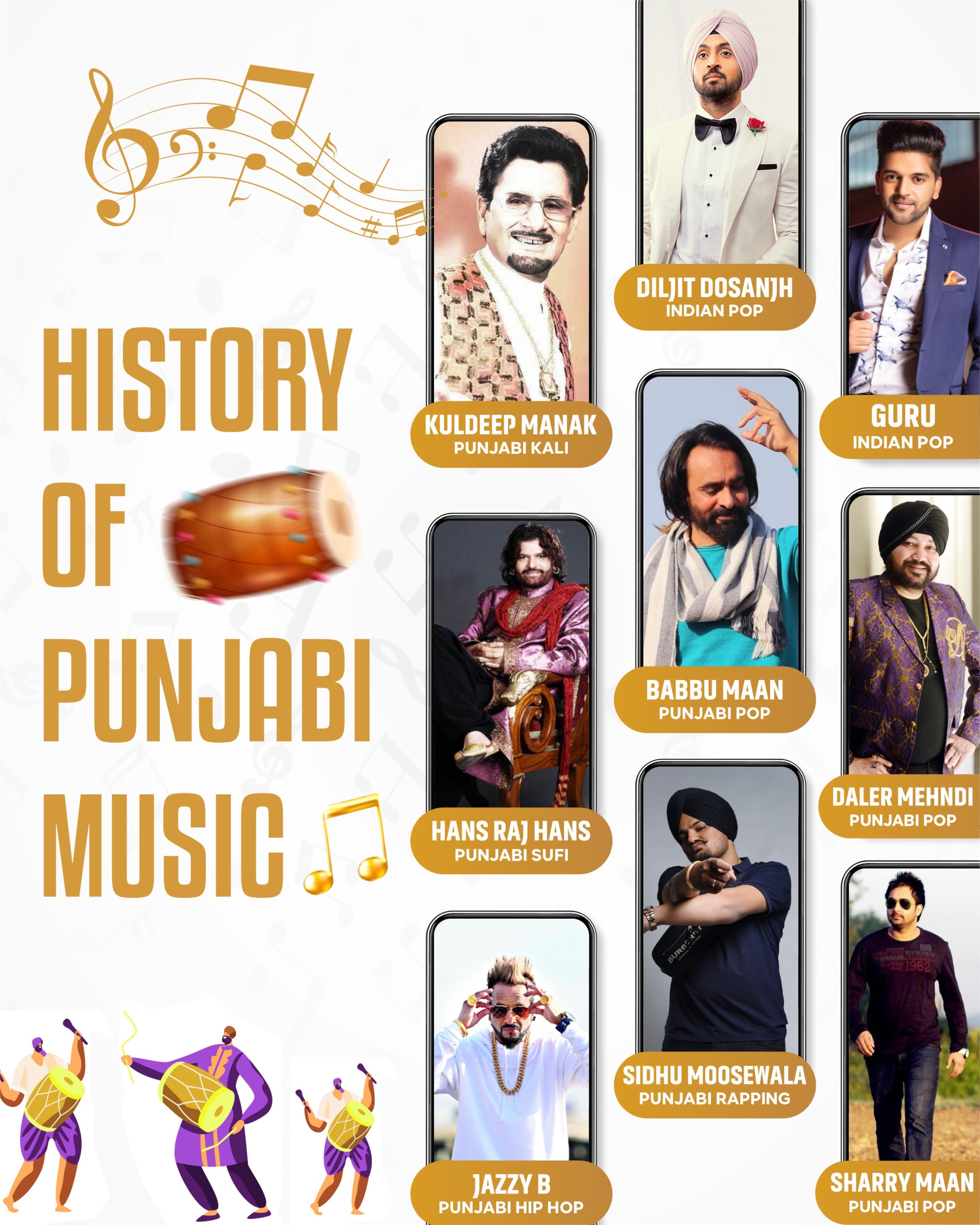Punjabi music has a long and rich history that dates back to ancient times. The music of Punjab is influenced by the region’s diverse cultural and religious traditions, and it has evolved over the years to become a unique and vibrant form of music that is loved and celebrated around the world.
The earliest recorded form of Punjabi music is the devotional music of the Sikh Gurus, which dates back to the 16th century. The Sikh Gurus used music as a means to spread their message and connect with their followers. The music was based on hymns from the Guru Granth Sahib, the holy book of the Sikhs, and it was accompanied by traditional Punjabi instruments such as the dhol, tabla, and harmonium.
In the 19th century, Punjabi music began to evolve and take on new forms. The arrival of British colonialists in India brought new musical influences to the region, and Punjabi music began to incorporate Western instruments such as the guitar, violin, and piano. The fusion of traditional Punjabi music with Western influences led to the development of new genres such as Punjabi folk music and Punjabi pop music.
The 20th century saw the rise of several iconic Punjabi musicians who have left a lasting impact on the music industry. One of the most famous Punjabi musicians of all time is Ustad Nusrat Fateh Ali Khan. He was a Pakistani musician who popularized the qawwali genre of music, which is a form of devotional music that originated in the Islamic Sufi tradition. Ustad Nusrat Fateh Ali Khan’s music was characterized by his powerful vocals and the use of traditional instruments such as the harmonium and tabla.
Another iconic Punjabi musician is Gurdas Maan. He is a singer, songwriter, and actor who has been active in the music industry for over 30 years. Gurdas Maan is known for his soulful and socially conscious lyrics, which often focus on themes such as love, patriotism, and Punjabi culture. He has won numerous awards for his contributions to the music industry, and his music continues to be loved and celebrated by fans around the world.
Today, Punjabi music continues to evolve and adapt to changing musical trends and influences. The rise of digital music platforms and social media has provided new opportunities for Punjabi musicians to reach a global audience and connect with fans around the world. The future of Punjabi music looks bright, and it is likely that we will see many more iconic musicians emerge from this rich and vibrant musical tradition.
In conclusion, the history of Punjabi music is a testament to the creativity, talent, and resilience of Punjabi musicians. From the devotional music of the Sikh Gurus to the fusion of traditional Punjabi music with Western influences, Punjabi music has evolved over the years to become a unique and vibrant form of music that is loved and celebrated around the world.


